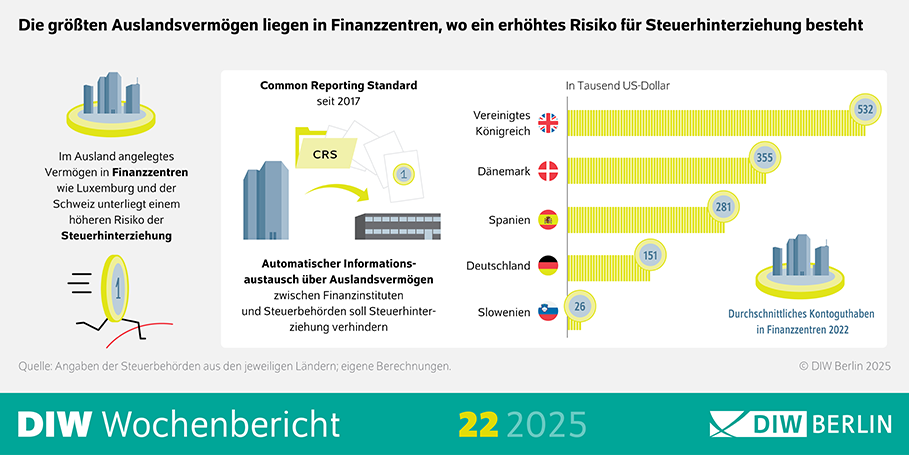2025-05-28
finance

A new study by the German Institute for Economic Research (DIW Berlin) highlights both progress and shortcomings in the global fight against tax evasion through the Common Reporting Standard (CRS). Introduced in 2017, the CRS enables the automatic exchange of information on foreign-held financial assets between tax authorities. While the system has led to greater detection of undeclared offshore wealth, significant limitations remain, particularly in identifying the true owners of assets held through corporate structures. The study, led by DIW Berlin’s Sarah Godar in collaboration with the EU Tax Observatory, is the first to evaluate CRS data made available by 16 countries. These countries collectively reported foreign assets worth about $3.5 trillion in 2022—representing roughly 30% of the total foreign assets disclosed under the CRS that year. Despite over 100 countries and territories participating in the CRS, many financial authorities have shown reluctance in releasing detailed data. This lack of transparency hinders assessments of the effectiveness and coverage of the system. “We see that combating tax evasion through the CRS is working,” said Godar, “but more transparency is needed to fully evaluate and close the existing gaps.” One area of concern is the limited ability of tax administrations to attribute accounts held by corporate entities to their actual owners. While the CRS allows tax authorities to assign 86 to 92 percent of foreign accounts to domestic taxpayers, the rate is considerably lower for accounts held via companies, particularly in financial hubs like Switzerland and Luxembourg. These jurisdictions see frequent use of passive corporate structures, which are often used to obscure beneficial ownership. Godar stressed the need for stronger political backing for tax authorities and enhanced data transparency to improve CRS implementation. She argued that countries with persistently low attribution rates should face increased political pressure to enhance compliance. Another challenge lies in the lack of standardised, public data. Although the OECD reports nearly $13 trillion in foreign assets under the CRS for 2022, the EU Tax Observatory estimates global offshore household wealth at $11 trillion for the same period. However, differences in methodology and definitions make direct comparisons difficult. The CRS figures exclude data from the United States, which does not participate in the initiative. Godar concluded that public access to harmonised statistics is essential for a meaningful discussion on equitable taxation of capital income. “We need public statistics on foreign assets covered by automatic information exchange, processed according to uniform standards,” she said, “to have an informed debate on the fair taxation of capital income.”

